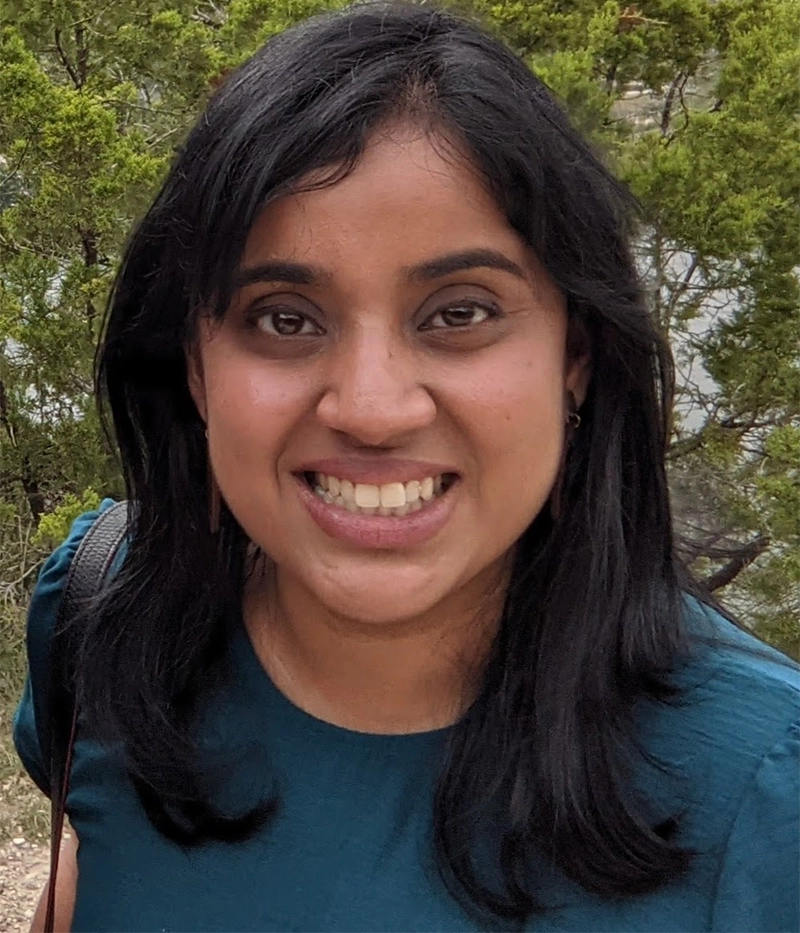Vaccines for influenza and COVID-19 have saved millions of lives and continue to be an effective tool to protect lung health. However, current vaccines need to be updated regularly as viruses mutate and change over time.
Priyadharshini Devarajan, PhD, a researcher from the Chan Medical School at the University of Massachusetts, was awarded an American Lung Association Catalyst Award to conduct research on T cells, a type of immune cell which could be the key to unlock long-term immunity in vaccines.
“Most vaccines produce an immune response that causes the body to produce antibodies to the outside of the virus to protect you from infection,” Dr. Devarajan said. “The vaccine gives you ‘immune memory,’ so the next time you have an infection, your body will remember how to fight it. But this falls short because the influenza and COVID-19 viruses mutate by continually changing their coat.”
It's What’s Inside that Counts
Instead of focusing on the outside parts of the virus which keep changing, Dr. Devarajan is taking an inside-out approach, targeting the internal mechanism which regulates how the virus replicates. “The virus can’t easily change its inner machinery, because it’s so important for its function,” she explains.
That’s where T cells come in: they can target the internal proteins of the virus that don’t easily change or mutate. This research focuses on an immune cell type located in the lung, known as CD4 T resident memory (CD4 TRM). This type of cell can provide protection directly in the tissues of the lung and nose, which are typically the first to be infected by respiratory viruses.
“If we can figure out the factors that induce T cells to develop in the lungs, that information can be used to develop vaccines that induce those factors,” she said. “This could result in more stable, long-lasting vaccines for respiratory viruses.”
Too Much of a Good Thing
While CD4 TRM cells can rapidly respond and protect against respiratory infections, too many of these cells also cause lung damage while they attempt to clear the virus. Accordingly, a second aim of Dr. Devarajan’s research is to explore if and why these cells cause damage.
“A lot of people who ended up in the hospital with COVID-19 had an immune system that went too far or wasn’t working in the right way to clear the virus,” she said. “Their immune responses ended up damaging the lung itself in the process of trying to kill the virus.”
Understanding why this occurs will provide new insights into designing vaccines that still offer protection while minimizing lung damage.
Catalyzing Research Careers
The American Lung Association Catalyst Award boosts the careers of young researchers who have or will have a faculty appointment or equivalent but have not yet received a career development award. “Most awards are either for postdocs or for professors who already have their own labs,” Dr. Devarajan said. “There are very few awards for scientists who are in between those two stages.”
Early career scientists like Dr. Devarajan are on a path to independence, which often means securing their own funding to test their own ideas. “If you have your own idea you want to pursue, you need funding for that,” says Dr. Devarajan. “Many mentors will let you start that, but it’s so much easier to have your own funding to pursue your own ideas. It gives you flexibility and independence.”
Catalyst Awards are unique in that applicants must identify a mentor in their grant proposal. Historically, this mentorship has been key to the success of its awardees. Inspired by her own mentor, Susan Swain, PhD, Dr. Devarajan wants to be an example to other women in science by running her own lab. “While women represent more than half of science PhDs, far fewer are full professors who are running their own labs,” she said. “We need to find a way to improve those numbers.”
The Right Funding at the Right Time
Those in the research community are calling for more support for women scientists at the institutional level, which can help those like Dr. Devarajan with work-life balance. “Awards for women at my career stages also help us balance our personal lives and stay in academia,” reflects Dr. Devarajan. “They give us the funding to be able to afford more resources to achieve that balance, like technical help to quickly finish an experiment and allow me to come home to my baby at a reasonable time.”
Using her funding from the Lung Association, Dr. Devarajan was able to gather preliminary data and was awarded an R21 grant from the National Institutes of Health related to her Catalyst work. The data and grants “catalyzed” Dr. Devarajan’s entry into an independent position and she looks forward to starting her own lab at Stony Brook University School of Medicine, this summer. “I really hope we have more and more grants available especially to women at this career stage,” says Devarajan.
She now joins the many Catalyst awardees who have experienced a career boost following funding from the Lung Association, a benefit that is worth more than the monetary amount of the grant alone.
Blog last updated: October 16, 2025



